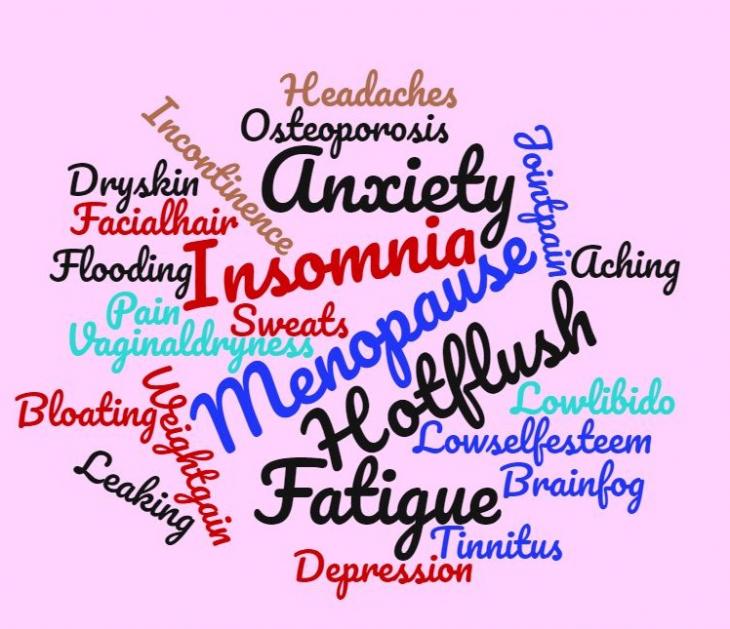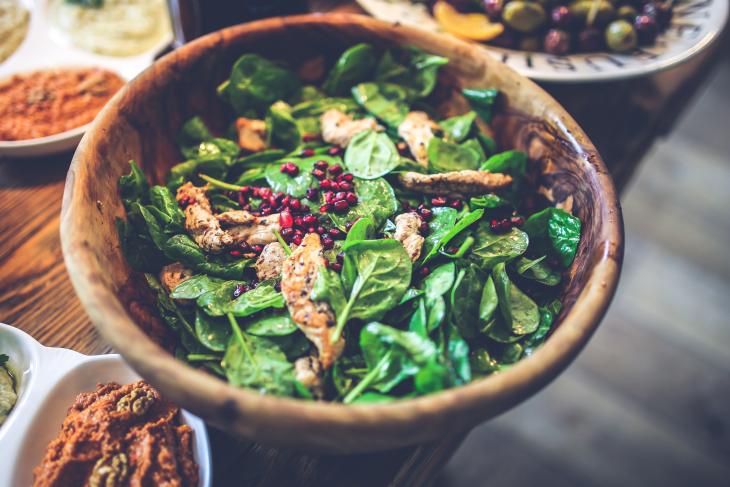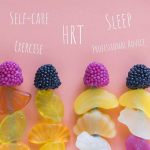Guest Blog: Written by Jackie Lynch (Well Well Well, Nutritional Therapy)
One of the few certainties in life is that every woman will go through the menopause. And yet there’s so little accessible information available that the early warning signs and symptoms that come with the peri-menopause can catch many women by surprise in their late 40s. During this time, you can experience quite a bit of hormonal havoc as the production of key sex hormones oestrogen, progesterone and testosterone becomes erratic, which can lead to a whole host of apparently unconnected symptoms.

The best-known symptoms are probably hot flushes, but not every woman will experience these because no two women have the same menopause. You might wonder why your skin has suddenly become so dry that you have to upgrade your moisturiser; or question why your periods have got more frequent and heavier instead of less frequent and lighter, as you might have expected; you might be affected by anxiety, loss of confidence or low mood; perhaps weight gain becomes an issue or you might feel constantly fatigued. If you’re suddenly experiencing one of more of these symptoms, then you may well be peri-menopausal.
There are lots of ways that diet and lifestyle can help to relieve these symptoms, so I’d like to share one of my favourite strategies, which I use regularly in my nutrition clinic.
It’s all about regulating stress levels. Easier said than done, because this can be a hugely stressful time, as you juggle the needs of a growing family and a busy professional life while caring for elderly relatives! But this is possibly the single best thing you could do, because Mother Nature has a cunning plan to help us manage the menopause. As our ovaries stop producing oestrogen, our adrenal glands are programmed to produce it in small amounts to cover our needs. The problem is that the adrenals are also responsible for producing our stress hormones, and if there’s too much stress going on, then your oestrogen production is going to take a back seat.
If you can reduce stress levels, your body should be able to produce the small amounts of oestrogen you need and this could make a big difference to your menopause symptoms. Anything you can do to relieve stress by focusing on consciously calming activities such as yoga, massage, mindfulness, walking in nature etc can only be a bonus, but here are 3 ways that nutrition can actively regulate stress hormones:
1. Balance Your Blood Sugar

Every time your blood sugar drops, the body releases the stress hormone cortisol to redress the balance. Low blood sugar will leave you feeling tired, irritable, shaky, headachy and dizzy and the cortisol will generate powerful cravings for sugary food or refined carbohydrate.
A blood sugar crash is usually a result of eating excessive amounts of sugary food and refined carbohydrate (e.g. white bread or white rice). Too much sugar in the blood will lead to the release of the hormone insulin to clear it all out which leaves blood sugar levels low. Your blood sugar is also likely to drop if you leave long gaps between meals.
Here’s how to balance blood sugar:
- Eat a combination of protein and fibre with every meal and snack. Good sources of protein include meat, fish, eggs, lentils, chick peas, beans, quinoa, nuts and seeds. Good sources of fibre are wholegrains (e.g. wholemeal bread, brown rice, wholegrain pasta), vegetables, pulses and fruit.
- Avoid long gaps between meals: aim to eat a meal or small snack roughly every 4 hours
- Limit your intake of confectionery, refined carbohydrate, baked goods, fruit juices and other sugary foods
2. Maximise Your Magnesium

If magnesium was a person, it would be a very busy woman. It’s responsible for over 300 different jobs in the body, in particular calming the nervous system and regulating the body’s response to stress. It’s also essential for energy production. A lack of magnesium can leave you feeling tired, anxious and less able to cope with stress.
Here’s how to boost your magnesium levels:
- Eat a daily portion of leafy green vegetables, such as spinach, kale, broccoli or watercress
- Opt for wholegrain foods such as brown rice or wholemeal bread
- Have an Epsom Salts (magnesium sulphate) bath. 2-3 handfuls in the bath and soak for at least 20 minutes. The magnesium will absorb through the skin, relaxing the muscles and setting you up for a good night’s sleep.
3. Boost the B’s

The different B vitamins have a variety of functions, but they all play a key role in energy production, which means a deficiency can leave you feeling tired and low. Low levels of vitamin B12 are very common if you’ve been exposed to chronic stress and this can impair memory, concentration and focus as well as leading to fatigue and depression.
Here’s how to boost the B’s
- B12 is only found in animal sources such as meat, fish or eggs. It’s also in some fortified foods like Marmite or certain breakfast cereals. Vegans may need to use supplements to ensure optimum levels.
- Am to eat 5 portions of vegetables every day. Peas, broccoli, peppers and mushrooms are all good sources of the different B vitamins
- Limit your intake of alcohol because it impairs the absorption of B vitamins in the body
Jackie Lynch is a Registered Nutritional Therapist and Author of Va Va Voom: the 10-Day Energy Diet (Headline 14.99) LINK: http://amzn.to/2ED8XZx and The Right Bite (Nourish Books, 2016) LINK: http://amzn.to/2FzTmuT
Jackie’s nutrition clinic is based in Notting Hill. Visit her website at www.well-well-well.co.uk or you can follow her on Twitter, Facebook or Instagram via @WellWellWellUK.
Our Barnes Clinic
Our clinic is located in Barnes, South-West London and is easily accessible by public transport.
For more information including parking and other practicalities see our Barnes clinic page
Book an Appointment
Booking an appointment with one of our therapists is quick and easy. There is no long waiting time and you don’t need a referral from your GP.








